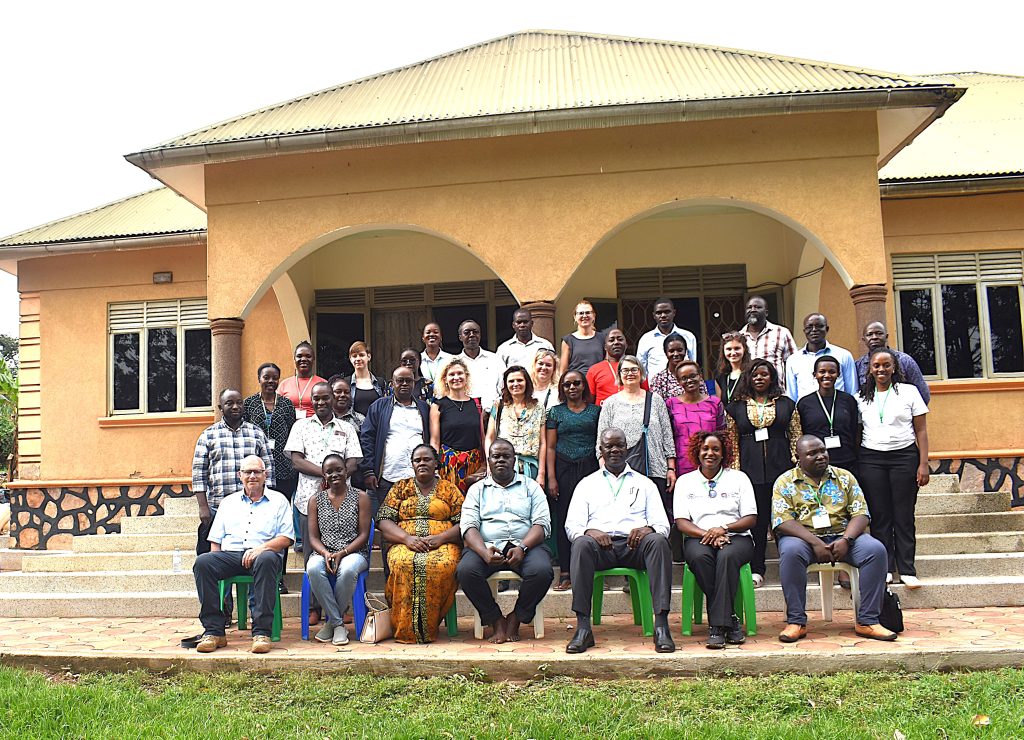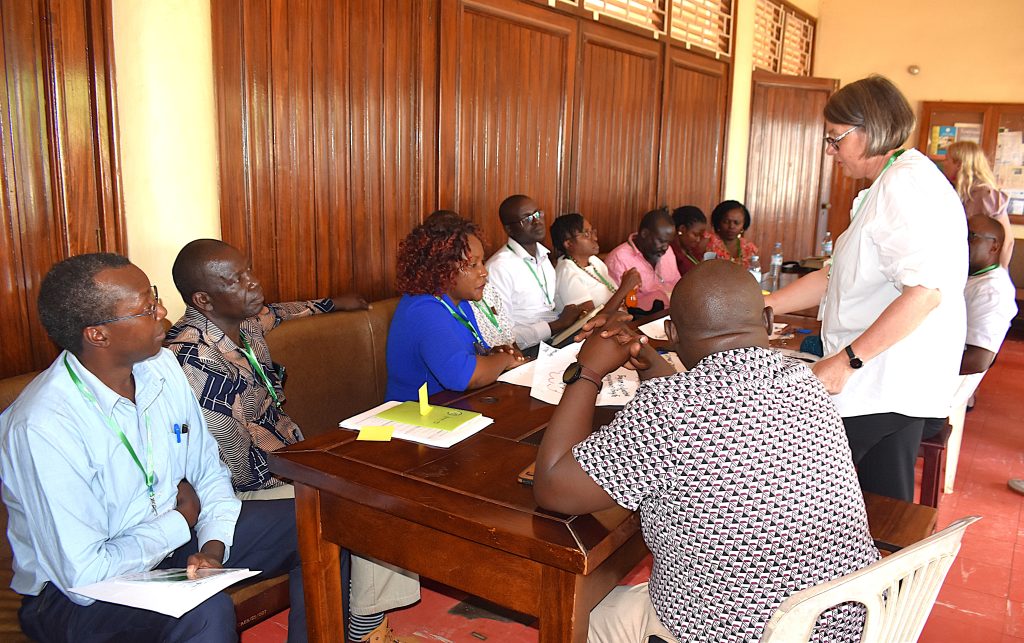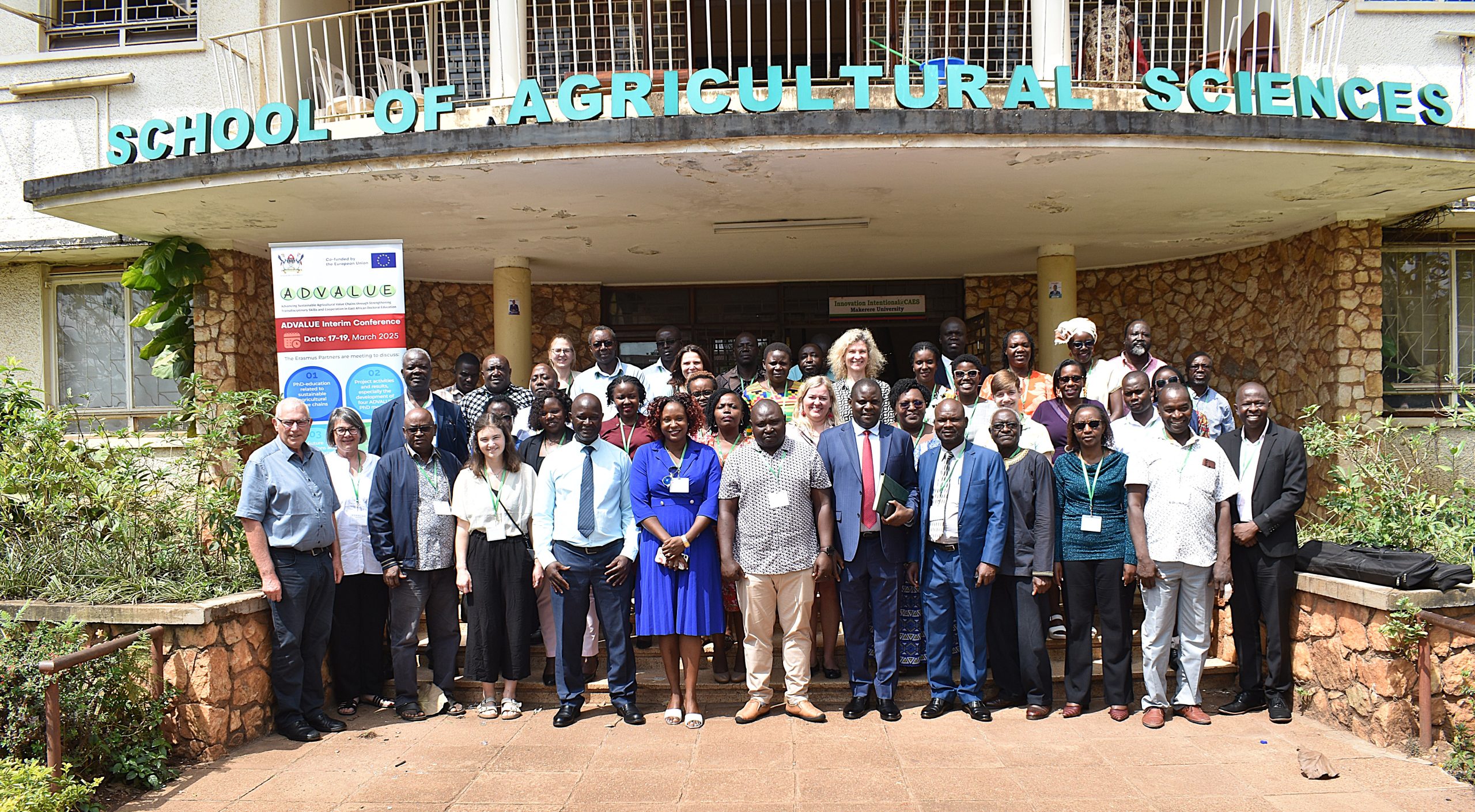
*****Working with potential future employers of PhD students in Kenya and Uganda, Advancing Sustainable Agricultural Value Chains through Strengthening Trans-disciplinary Skills and Cooperation in East African Doctoral Education (ADVALUE) Project aims to develop curricula that best prepare academic specialists in agricultural sciences for their careers.
Overview
The lack of skills-oriented training significantly undermines the relevance of doctoral graduates in today’s rapidly evolving job market, particularly within industries such as agriculture, where practical expertise and adaptability are essential. While doctoral programmes traditionally emphasize research and theoretical knowledge, they often fail to equip graduates with the hands-on, industry-specific skills needed to address real-world challenges. In agricultural value chains, for instance, the ability to apply advanced research to optimize production, supply chain management, sustainability practices, and technological advancements is crucial. Without a strong foundation in these practical areas, doctoral graduates may struggle to effectively contribute to innovation and efficiency in agricultural systems. From improving crop yields through data analysis to enhancing logistics and distribution methods, agricultural value chains require professionals who can seamlessly integrate research with practical application.
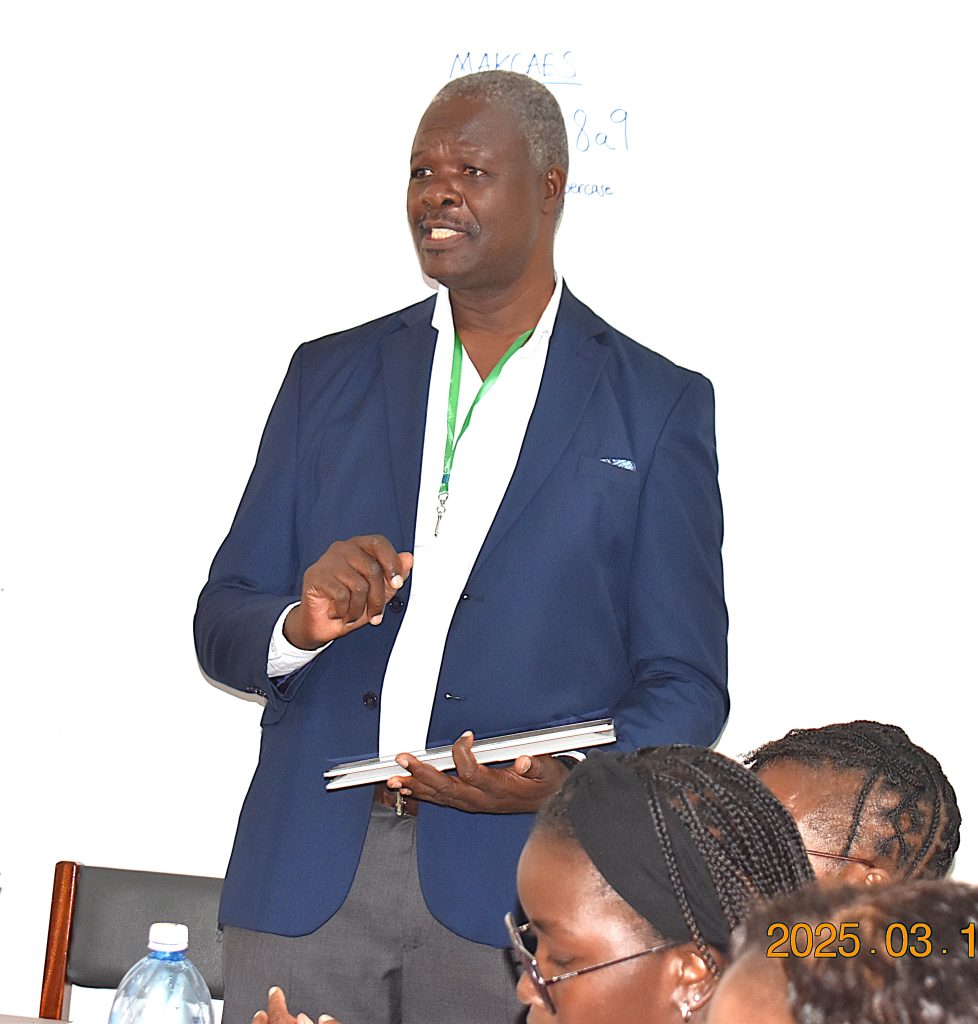
What the ADVALUE Project targets to address
Co-funded by the European Union, the ADVALUE Project—Advancing Sustainable Agricultural Value Chains through Strengthening Trans-disciplinary Skills and Cooperation in East African Doctoral Education—seeks to modernize doctoral education in agricultural and agro-environmental sciences at universities in Uganda and Kenya. This initiative aims to enhance trans-disciplinary skills to promote the development of sustainable agricultural value chains, addressing pressing challenges such as food insecurity, unemployment, and climate change.
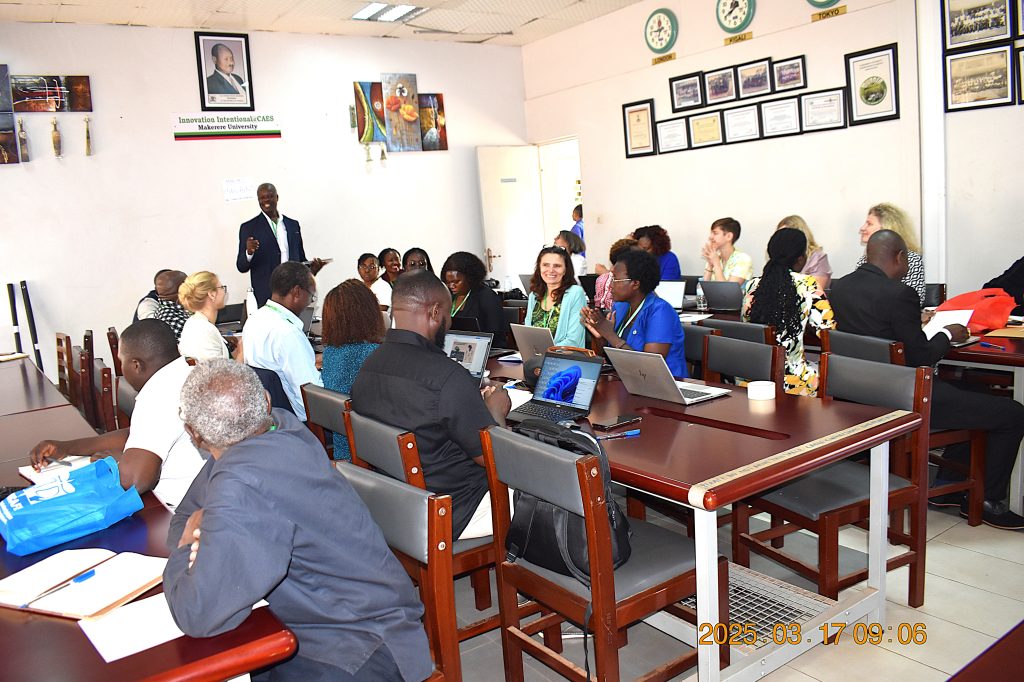
Project partners include; Nuertingen-Geislingen University, Germany (NGU); German Institute for Tropical and Subtropical Agriculture (DITSL); Czech University of Life Sciences Prague (CZU); Swedish University of Agricultural Science (SLU); Makerere University, Uganda; Uganda Christian University (UCU); University of Nairobi, Kenya (UoN); Pwani University Kenya (PU); Regional Universities Forum for Capacity Building in Agriculture, Uganda (RUFORUM). Associated Partners: European Alliance in Agricultural Knowledge for Development, Belgium (AGRINATURA); National Agricultural Research Organization, Uganda (NARO); National Council of Higher Education, Uganda (NCHE); Kenya Agricultural and Livestock Research Organisation (KALRO); Ministry of Education Science and Technology Kenya (MoEST). The project PI is Prof. Dr. Heinrich Schüle. In Uganda, the project is coordinated by Prof. John Tabuti.

Project objectives
- Develop innovative courses on trans-disciplinary research methodologies and value chain analysis within doctoral programmes.
- Strengthen collaboration with key stakeholders to ensure research is demand-driven and fosters innovation.
- Enhance the expertise of both academic staff and doctoral students.
- Improve quality assurance frameworks and development processes in doctoral education.
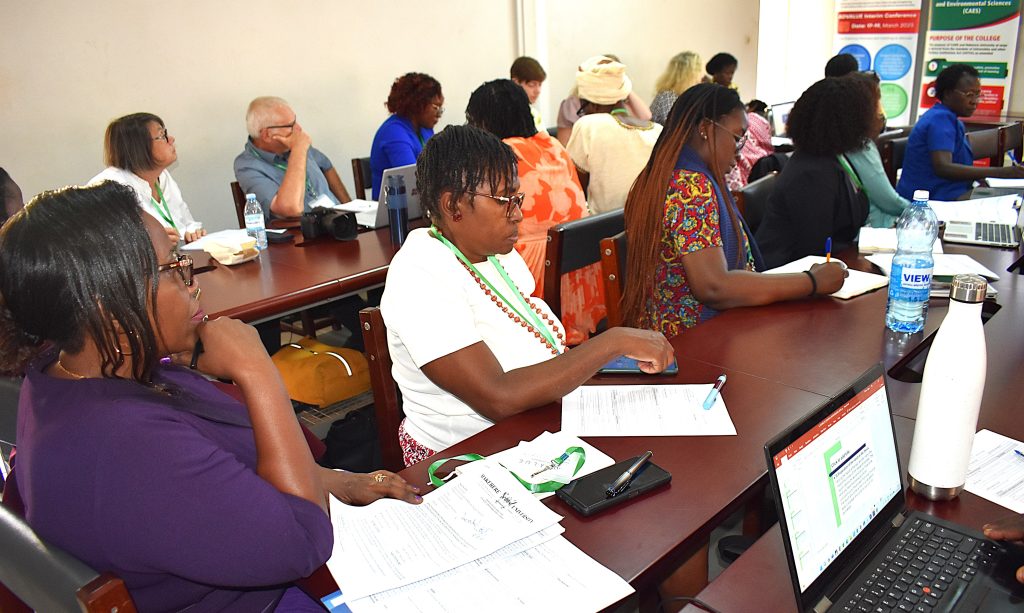
To achieve these goals, ADVALUE is developing four modules for PhD students that will be integrated into the curricula of the partner universities in Kenya and Uganda, taking into account the experiences and expectations of local stakeholders and potential future employers. The modules will include topics on scientific work, trans-disciplinary research, rangeland management, and agricultural value chains. The collaboration and exchange between the universities and representatives from the working environment, government organisations and international partners aims to strengthen the career prospects of postgraduate students in East Africa and promote their expertise with regard to the local requirements for achieving the SDGs.
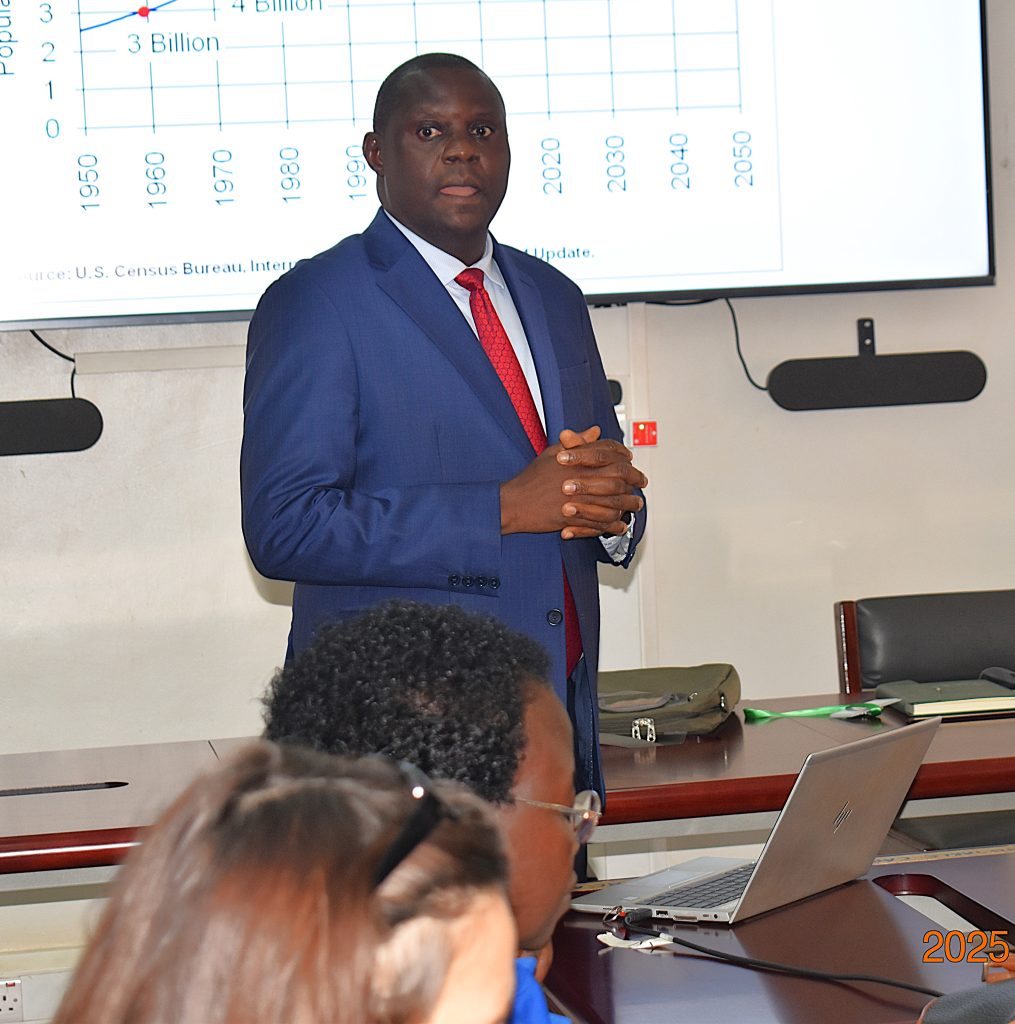
The ADVALUE interim conference
The project team held an interim conference at Makerere University on 17-19th March 2025 to evaluate the state of PhD education in agriculture, incorporating diverse insights from both European and East African perspectives. The conference brought together academic staff, students, and leaders from partner institutions, associated organizations, and key stakeholders in the Agricultural sector.

The conference aimed to highlight the progress and findings of the project, offering a platform for discussing PhD research on agricultural value chains within higher education institutions (HEIs). A key focus was on trans-disciplinary approaches, as well as fostering dialogue on quality criteria for PhD programs. Additionally, the event served as a formal meeting for the project’s Steering Committee and provided an opportunity for partners to refine their assessments of doctoral education in line with established quality standards and institutional contexts.
Presentation by Mr. Joseph Nkandu on the Agricultural Value Chains in E.A
In his address on the sustainability of agricultural value chains in East Africa, Mr. Joseph Nkandu, Executive Director of NUCAFE (Uganda’s national umbrella organization for coffee farmers), emphasized the vital role that higher education plays in strengthening and advancing agricultural value chains. He stressed the importance of aligning education with the region’s broader development goals to ensure that future generations of agricultural professionals are equipped with the necessary skills for sustainable growth. “Education must become more practical and closely integrated with the region’s development objectives,” he noted. He praised the initiative, noting that the project would greatly enhance doctoral training at partner institutions, empowering students with advanced knowledge and skills to support and sustain agricultural value chains across East Africa. “The sustainability of Africa’s value chains is essential if we are to meet the demands of the growing population,” he added.
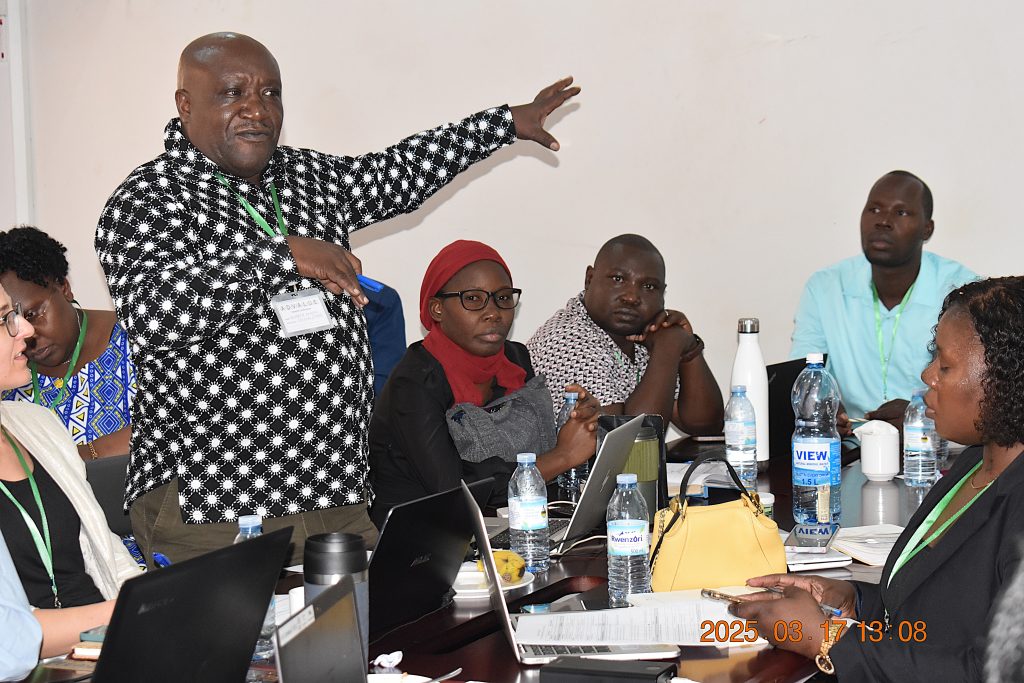
Uganda’s agricultural value chains are a cornerstone of its economy. However, several challenges threaten their sustainability, including climate change, which affects crop yields and water availability; inadequate infrastructure, which hinders market access; limited access to finance for smallholder farmers; land degradation; and insufficient technology adoption. Moreover, pest outbreaks and post-harvest losses further undermine the efficiency and profitability of agricultural systems. Tackling these challenges is essential to improving the sustainability and resilience of Uganda’s agricultural sector.
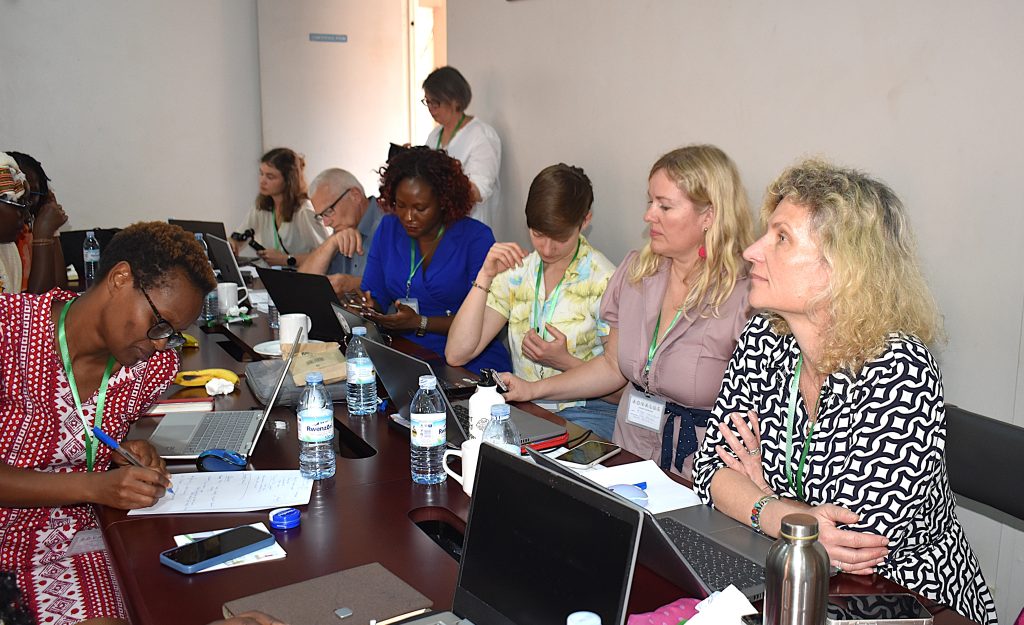
Remarks from NCHE
In her remarks, Prof. Mary Okwakol, the Executive Director of the National Council for Higher Education, emphasized the critical role of doctoral training in driving societal progress. She explained that advanced research and innovation resulting from doctoral programmes not only contribute to academic advancement but also pave the way for ground-breaking discoveries. “These discoveries, in turn, play a pivotal role in shaping and transforming nation-states by addressing pressing challenges, fostering economic growth, and improving the quality of life for communities.” Prof. Okwakol called for continued investment in doctoral education to harness its potential for national development and global competitiveness.
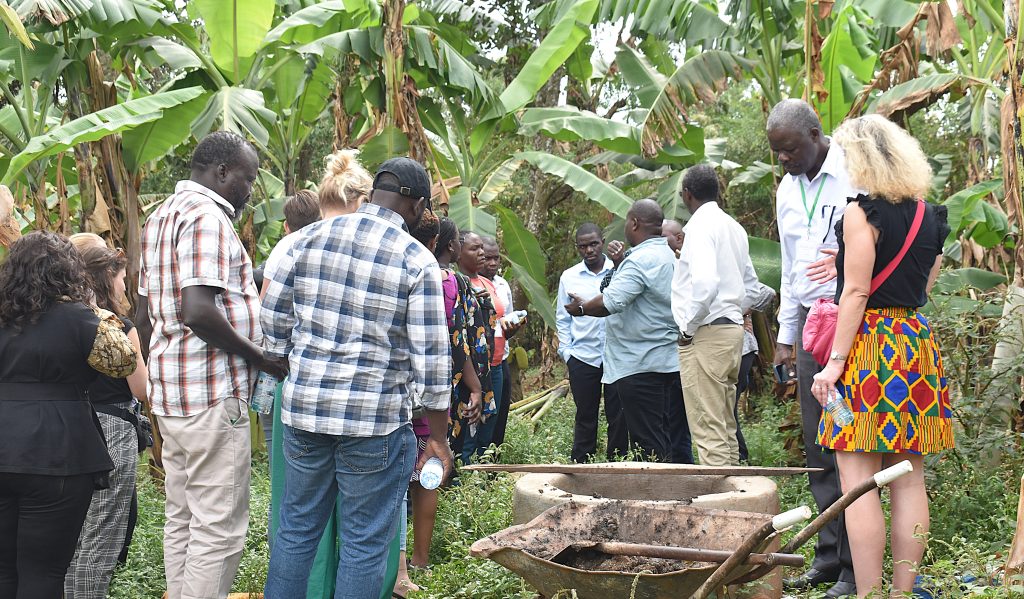
Highlighting the challenges related to Doctoral training, the Deputy Principal of CAES, Prof. Yazidhi Bamutaze, noted that the project was timely and would greatly strengthen the research capabilities of doctoral students, ensuring that their skills are more aligned with current academic and industry needs, ultimately improving the overall relevance and impact of their research outputs. “As Makerere University strives to become a research-intensive institution, the importance of collaboration cannot be overstated. This project will make a substantial contribution to this goal.”
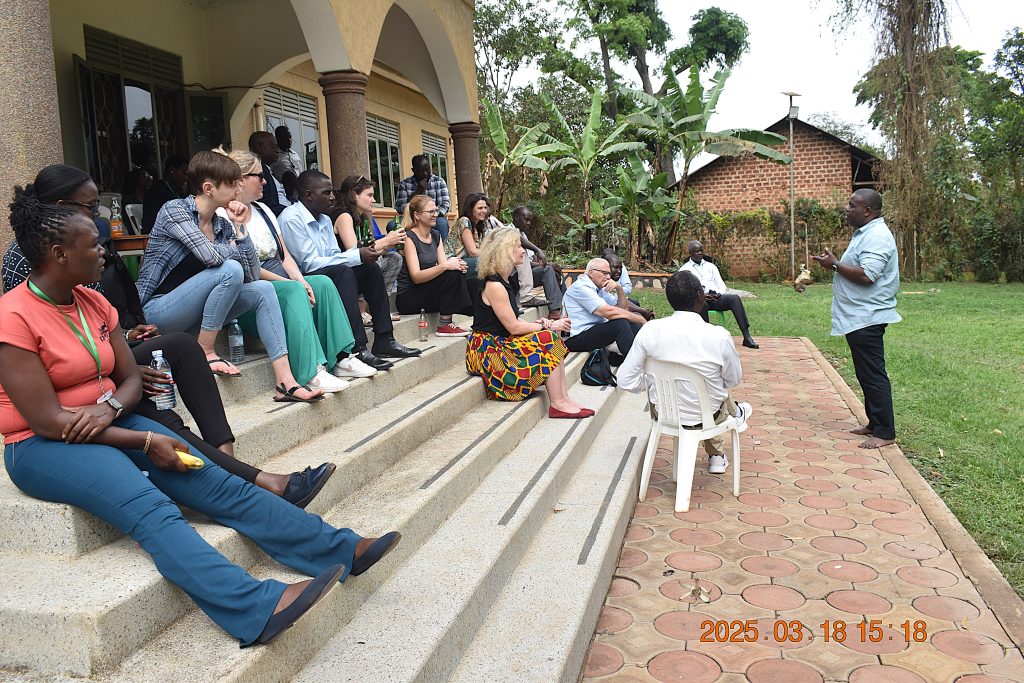
Engagement with smallholder farmer in Matugga
During the conference, the project team had the opportunity to visit the farm of Mr. Sam Mpiira, a dedicated smallholder farmer located in Matugga, within Nansana Municipality. The visit allowed the team to gain first-hand insight into Mr. Mpiira’s farming practices, observe the challenges he faces, and better understand the impact of various agricultural initiatives in the region. This experience was an important part of the conference, as it provided a real-world context to the discussions on smallholder farming and rural development.
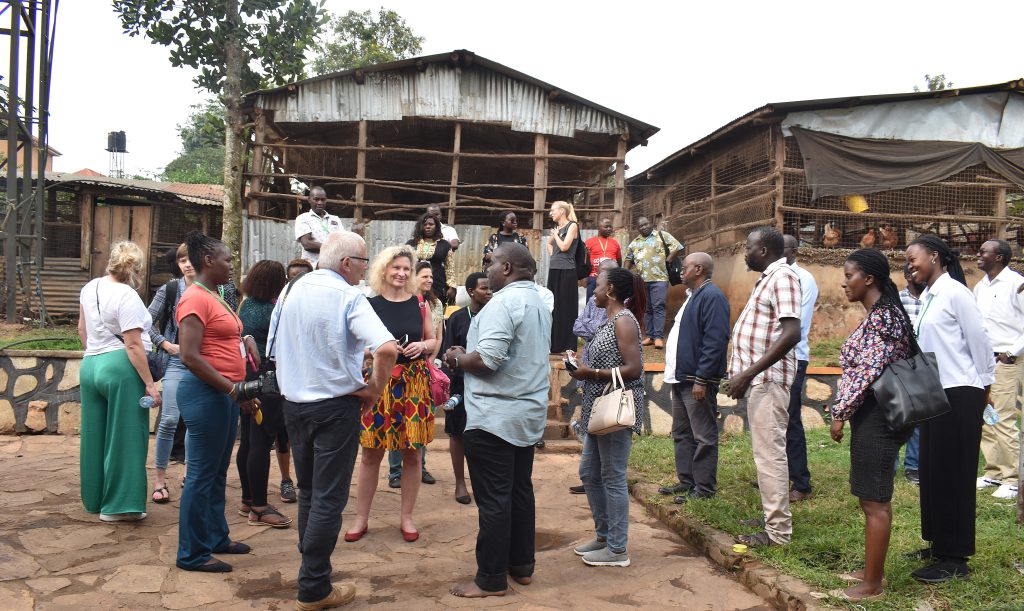
Key Issues Arising from the Workshop
- Overemphasis on theoretical science: While science is extensively studied, its practical application remains problematic.
- Outdated supervision: Many PhD supervisors are not up-to-date with current research trends. There is a need for educational frameworks that align with the latest development agendas.
- Technician mentality among graduates: A significant number of PhD graduates tend to think like technicians rather than innovators. Many struggle to apply the knowledge they’ve acquired and lack the ability to think creatively.
- Lack of innovation: There is a notable absence of innovation among doctoral graduates, which hinders progress.
- Evolving skillsets in value chains: There is an urgent need to address the changing skillsets required across different value chains.
- Unrealistic PhD programme durations: The prescribed durations for PhD programmes are often unrealistic and fail to reflect the complexity of the research process.
- Competing priorities: The multiple demands on students’ time hinder their ability to complete doctoral studies in time.
- Financial barriers: Limited funding continues to undermine the success and sustainability of doctoral training programmes.
- Lack of student commitment: Some doctoral students exhibit a lack of commitment and dedication to their studies, impacting their success.
- Negative student attitudes: Students often display an underestimation of the role and guidance of their supervisors, which affects their academic progress.
- Inadequate research facilities: Limited access to essential research facilities hampers the quality of doctoral research.
- Weak analytical skills: Many doctoral students lack the necessary analytical skills to perform at the required level of their academic discipline.
- Gender-based challenges: Gender roles negatively impact the performance and progression of female doctoral students, limiting their academic potential.
- Supervisory workload: Excessive workload on supervisors affects the quality and effectiveness of their mentorship.
- Need for relearning in value chains: Achieving sustainability in value chains demands continuous relearning and adaptation.
Recommendations
- Dedicated study leave: Doctoral students should be granted leave from other responsibilities to focus fully on their research.
- Creating research spaces: Institutions must create dedicated, conducive workspaces for doctoral students to foster collaboration and focus.
- Increase funding opportunities: More scholarships and financial support should be made available to PhD students to ease financial barriers.
- Research-oriented supervision: Supervisors must establish and maintain active research agendas to ensure they remain relevant and effective in guiding students.
- Strengthen institutional collaboration: Encouraging greater collaboration between Higher Education Institutions can foster exchange of ideas and resources to enhance doctoral research outcomes.
More photos at:
https://drive.google.com/drive/folders/1cZwlLXt5YBWoeMfO0wVbdva0NLIQ5sHr
https://drive.google.com/drive/folders/107GJR6nCZJwKjmfrwveGXw7As2AhAQWt
